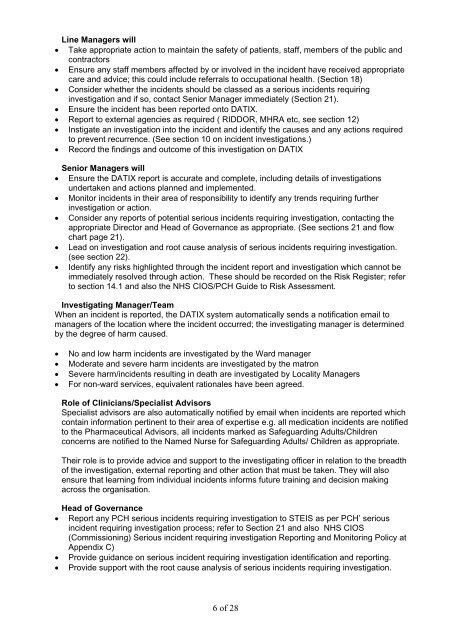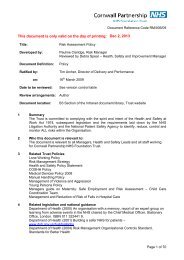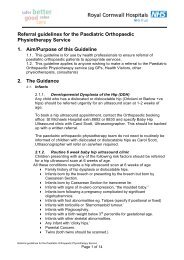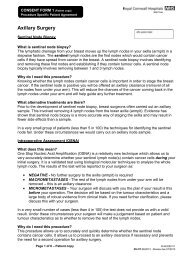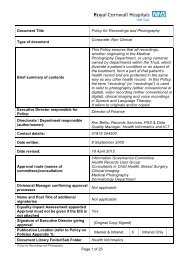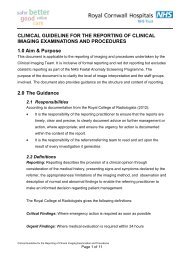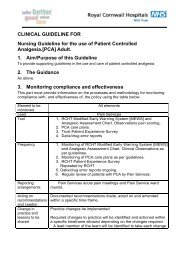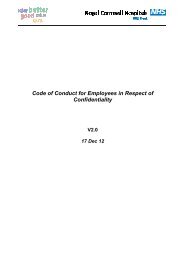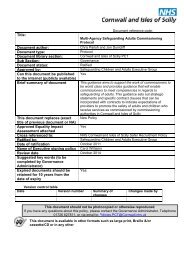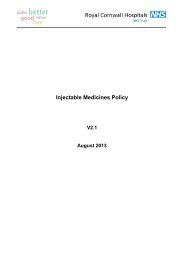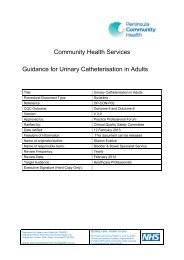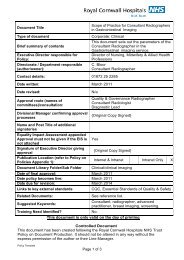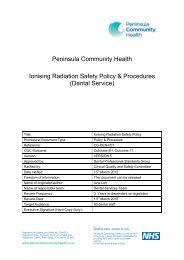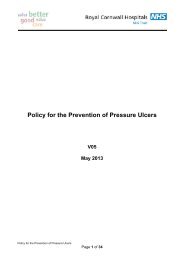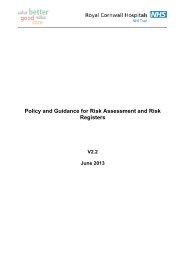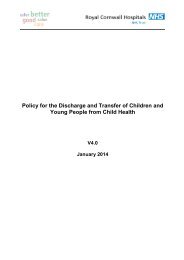Incident Management Policy Including Serious Incidents Requiring ...
Incident Management Policy Including Serious Incidents Requiring ...
Incident Management Policy Including Serious Incidents Requiring ...
You also want an ePaper? Increase the reach of your titles
YUMPU automatically turns print PDFs into web optimized ePapers that Google loves.
Line Managers will Take appropriate action to maintain the safety of patients, staff, members of the public andcontractors Ensure any staff members affected by or involved in the incident have received appropriatecare and advice; this could include referrals to occupational health. (Section 18) Consider whether the incidents should be classed as a serious incidents requiringinvestigation and if so, contact Senior Manager immediately (Section 21). Ensure the incident has been reported onto DATIX. Report to external agencies as required ( RIDDOR, MHRA etc, see section 12) Instigate an investigation into the incident and identify the causes and any actions requiredto prevent recurrence. (See section 10 on incident investigations.) Record the findings and outcome of this investigation on DATIXSenior Managers will Ensure the DATIX report is accurate and complete, including details of investigationsundertaken and actions planned and implemented. Monitor incidents in their area of responsibility to identify any trends requiring furtherinvestigation or action. Consider any reports of potential serious incidents requiring investigation, contacting theappropriate Director and Head of Governance as appropriate. (See sections 21 and flowchart page 21). Lead on investigation and root cause analysis of serious incidents requiring investigation.(see section 22). Identify any risks highlighted through the incident report and investigation which cannot beimmediately resolved through action. These should be recorded on the Risk Register; referto section 14.1 and also the NHS CIOS/PCH Guide to Risk Assessment.Investigating Manager/TeamWhen an incident is reported, the DATIX system automatically sends a notification email tomanagers of the location where the incident occurred; the investigating manager is determinedby the degree of harm caused.No and low harm incidents are investigated by the Ward managerModerate and severe harm incidents are investigated by the matronSevere harm/incidents resulting in death are investigated by Locality ManagersFor non-ward services, equivalent rationales have been agreed.Role of Clinicians/Specialist AdvisorsSpecialist advisors are also automatically notified by email when incidents are reported whichcontain information pertinent to their area of expertise e.g. all medication incidents are notifiedto the Pharmaceutical Advisors, all incidents marked as Safeguarding Adults/Childrenconcerns are notified to the Named Nurse for Safeguarding Adults/ Children as appropriate.Their role is to provide advice and support to the investigating officer in relation to the breadthof the investigation, external reporting and other action that must be taken. They will alsoensure that learning from individual incidents informs future training and decision makingacross the organisation.Head of Governance Report any PCH serious incidents requiring investigation to STEIS as per PCH’ seriousincident requiring investigation process; refer to Section 21 and also NHS CIOS(Commissioning) <strong>Serious</strong> incident requiring investigation Reporting and Monitoring <strong>Policy</strong> atAppendix C) Provide guidance on serious incident requiring investigation identification and reporting. Provide support with the root cause analysis of serious incidents requiring investigation.6 of 28


